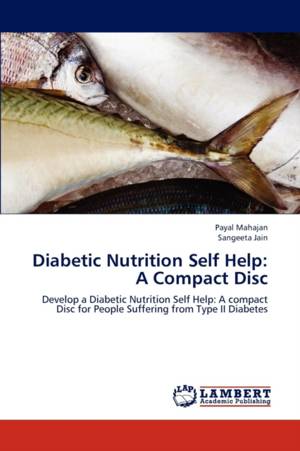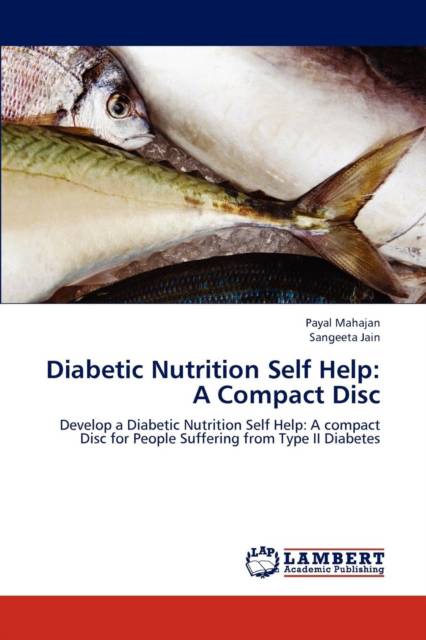
- Afhalen na 1 uur in een winkel met voorraad
- Gratis thuislevering in België vanaf € 30
- Ruim aanbod met 7 miljoen producten
- Afhalen na 1 uur in een winkel met voorraad
- Gratis thuislevering in België vanaf € 30
- Ruim aanbod met 7 miljoen producten
Diabetic Nutrition Self Help: A Compact Disc
Develop a Diabetic Nutrition Self Help: A compact Disc for People Suffering from Type II Diabetes
Payal Mahajan, Sangeeta Jain
Paperback | Engels
€ 63,45
+ 126 punten
Omschrijving
In the modern age, the affluent and middle class is a steadily growing population where a minority of even five percent of the population means over 40 million people (Gopalan 1996). In this group, there is an emergence of changes in life styles, value systems, occupational patterns and dietary habits. These are reflected in over nutrition, which is leading to steep escalation in incidence of degenerative disorders like coronary heart diseases, obesity and diabetes mellitus. These chronic degenerative disorders are being expressed as public health problem especially in urban areas.Studies by various workers clearly indicate that nutrition education is very important to educate people about the disease, its complications and how to reduce the secondary complications. Education is an essential part of diabetes management. Its purpose is to make a diabetic as knowledgeable and self sufficient as possible. Diabetes education will help people to cope with the disease and its various demands such as diet adjustment, injections, monitoring and social adjustment.
Specificaties
Betrokkenen
- Auteur(s):
- Uitgeverij:
Inhoud
- Aantal bladzijden:
- 140
- Taal:
- Engels
Eigenschappen
- Productcode (EAN):
- 9783659257094
- Verschijningsdatum:
- 26/09/2012
- Uitvoering:
- Paperback
- Afmetingen:
- 150 mm x 220 mm
- Gewicht:
- 213 g

Alleen bij Standaard Boekhandel
+ 126 punten op je klantenkaart van Standaard Boekhandel
Beoordelingen
We publiceren alleen reviews die voldoen aan de voorwaarden voor reviews. Bekijk onze voorwaarden voor reviews.










